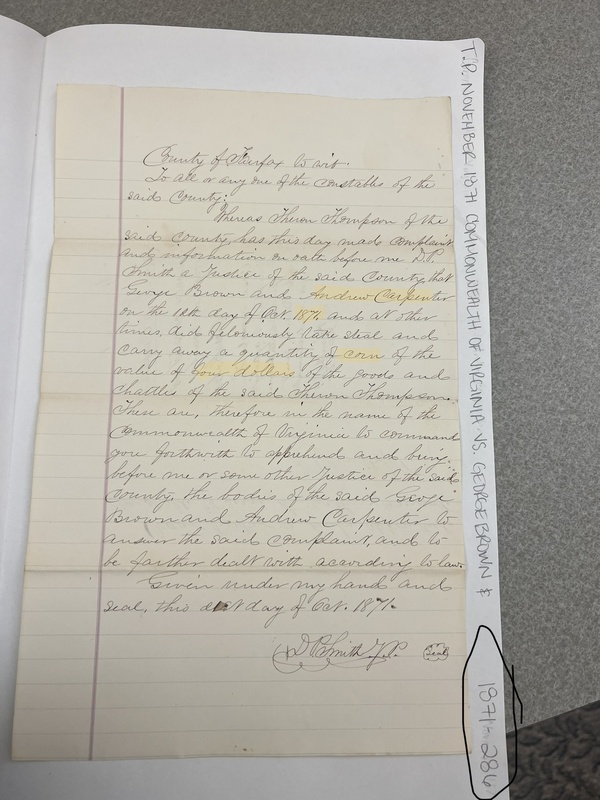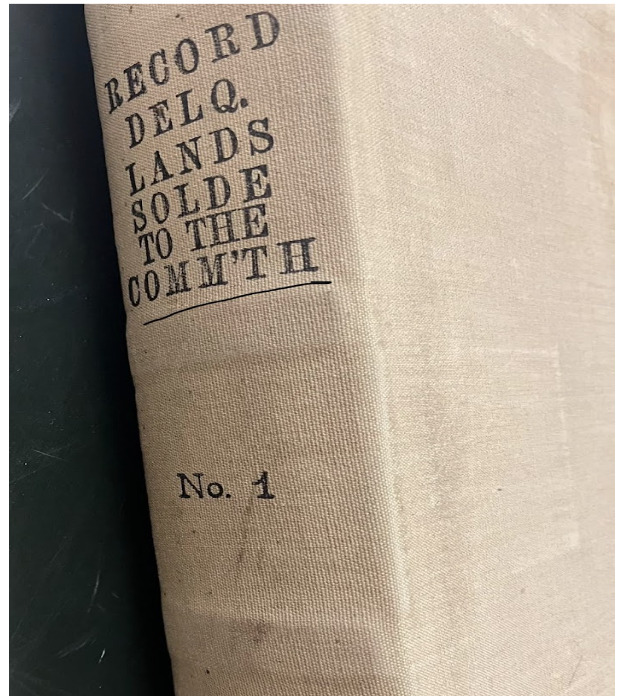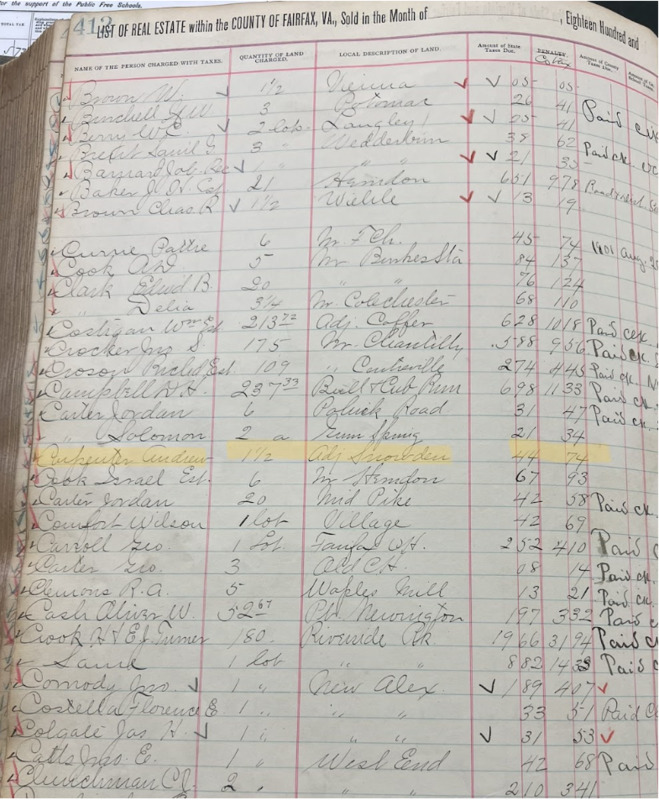Andrew Carpenter's Past
Before owning land Andrew Carpenter was accused of stealing $4 worth of corn with George Brown on the 12th of October in 1871. The value of $4 worth of corn in the 1870s would have varied depending on the specific time and location within that decade, as well as other economic factors. In the United States, for example, the price of corn in the 1870s varied, but it was generally around $0.30 to $0.50 per bag. The average price of corn was around $0.40 per bag during that time.
Andrew Carpenter voted in 1867 in the voting of the Third Magisterial District of Fairfax County. At the time in 1867, 105,832 freedmen registered to vote in Virginia, and 93,145 voted in the election that began on October 22, 1867. Artist Alfred Rudolph Waud depicted "The First Vote" of African Americans in Virginia in the November 16, 1867, issue of Harper's Weekly magazine.
Lastly Andrew Carpenter’s name was found in Record Delinquents Lands Sold to the Commonwealth in Fairfax County. This shows that his land didn’t go to his family after he passed away in 1900. We can assume that his land was sold due to his criminal background and there is no record of his land in the tax record books after his death. There also wasn’t a will when he passed so his family did not receive anything.
The details of Andrew Carpenter's life underscore the pervasive racial and economic inequalities of the time. Despite exercising his right to vote, he still faced challenges and obstacles, as evidenced by the legal issues and the ultimate fate of his land. This reflects broader societal struggles for African Americans in the post-Civil War South.
Reflecting on Andrew Carpenter's life allows for a broader consideration of historical legacies. How did his experiences contribute to the broader narrative of Reconstruction, racial dynamics, and economic disparities in the post-Civil War South? Examining the consequences of his criminal accusation and the sale of his land contributes to an understanding of the challenges faced by individuals during this period. By delving deeper into these aspects, we can paint a more comprehensive picture of Andrew Carpenter's life and the historical context in which he lived
[1]T.P November 1871 Commonwealth of Virginia Vs. George Brown (1871), Historic Records Center Fairfax County Circuit Court
[2]Record Delinquents Lands Sold to the Commonwealth in Fairfax County No.1, Fairfax County Circuit Court Historic Records Center, Fairfax, Virginia.
By Anabela Shearer


